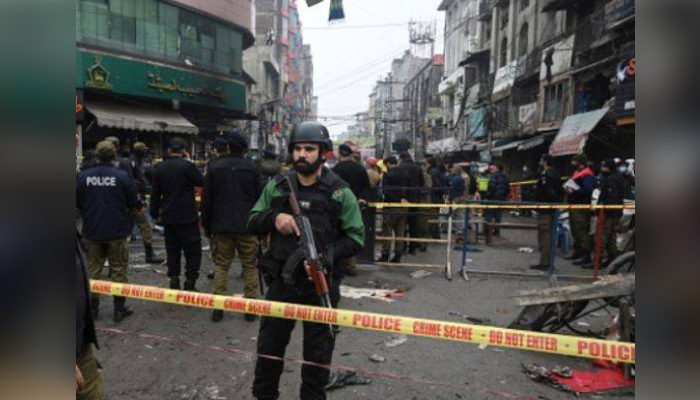Islamabad (Web Desk): Pakistan has been ranked second in the Global Terrorism Index (GTI) 2025, with a sharp 45% increase in terrorist-related deaths over the past year, bringing the total to 1,081 fatalities.
The report, published by the Institute for Economics and Peace (IEP), provides a comprehensive analysis of global terrorism trends over the last 17 years.
The country saw a dramatic rise in terrorist activities in 2024, with incidents doubling from 517 attacks in 2023 to 1,099, marking the first time the number of attacks surpassed 1,000.
This increase in violence marks the most significant rise in terrorism-related deaths Pakistan has experienced in a decade.
The GTI 2025 tracks 163 nations, representing nearly the entire global population, and measures factors such as the number of terrorist attacks, deaths, injuries, and hostages.
Last year, the number of countries experiencing terrorism rose from 58 to 66, reversing almost a decade of progress in reducing global terrorism.
A total of 45 nations saw their situations worsen, with the rise in fatalities largely attributed to four main terrorist groups: Daesh, Boko Haram, Al-Shabaab, and TTP.
These groups alone were responsible for an 11% increase in deaths, while in the West, lone-wolf attacks have become more common, contributing to 93% of fatal incidents in recent years.
A central focus of the report is the growing influence of TTP, particularly in Pakistan and Afghanistan. In 2024, the group was linked to 558 deaths, underscoring its expanding role in regional instability.
Founded in 2007, TTP is a coalition of militant factions that has long been at odds with Pakistan's government, pushing for the imposition of strict Sharia law and the withdrawal of military forces from the country’s tribal regions.
With its historical ties to Al-Qaeda, TTP has focused its efforts on attacking security forces, government installations, and civilians.
Experts highlight that the Taliban's control over Afghanistan has provided TTP with a sanctuary, enabling the group to expand its operations along the porous Pak-Afghan border.
The report also notes that while the bulk of terrorism-related fatalities remain concentrated in conflict zones, the Western world has seen a notable increase in attacks carried out by radicalized individuals.
Countries such as Germany, Sweden, and Australia have experienced significant terrorist incidents for the first time in years, primarily driven by lone-wolf attackers.
Moreover, terrorist groups have started to exploit new technologies, with the use of AI-driven propaganda, encrypted messaging platforms, and cryptocurrency becoming more prevalent in their operations.
The rise of minors involved in terrorism is another worrying trend observed in the GTI 2025.
In the UK, under-18s accounted for 42% of all terrorism-related arrests last year, signaling a shift towards online radicalization. This shift, particularly through social media, gaming platforms, and encrypted communication channels, has made it easier for extremist groups to reach and recruit younger individuals.
Regionally, the Sahel remains a key hotspot for terrorism, with Burkina Faso recording the highest number of deaths globally. In the Middle East and North Africa, terrorism-related activities decreased by 7%, although ongoing instability in Gaza and Syria continues to fuel regional conflicts.
The ongoing Israeli-Palestinian conflict has also sparked a rise in hate crimes in the West, particularly targeting Jewish and Muslim communities.
In South Asia, both Pakistan and Afghanistan are facing growing threats from militant groups like TTP and Daesh Khorasan (ISK), which have intensified their activities in the region, particularly in areas along the Afghan border.
The Taliban's grip on Afghanistan has emboldened these groups, giving them a safe haven to carry out cross-border operations and further destabilize the region.
The GTI 2025 underscores the evolving nature of global terrorism, with new technologies facilitating the growth of extremist groups.
As TTP continues to expand its operations, its growing influence in both Pakistan and Afghanistan remains a significant concern, requiring urgent attention from regional and global policymakers.


